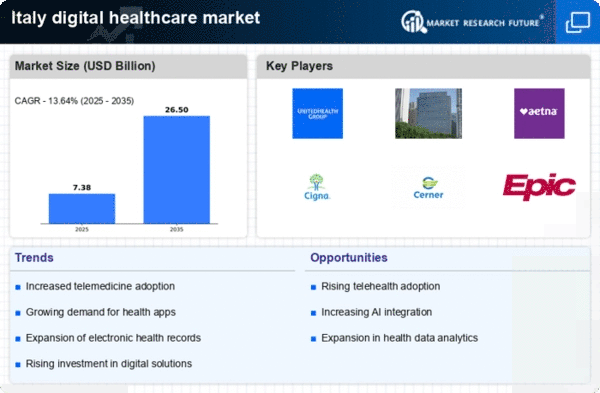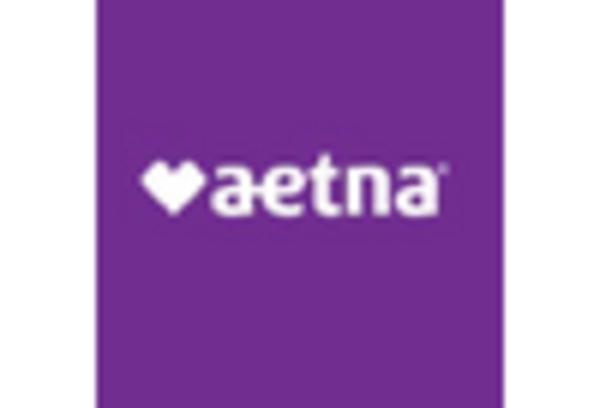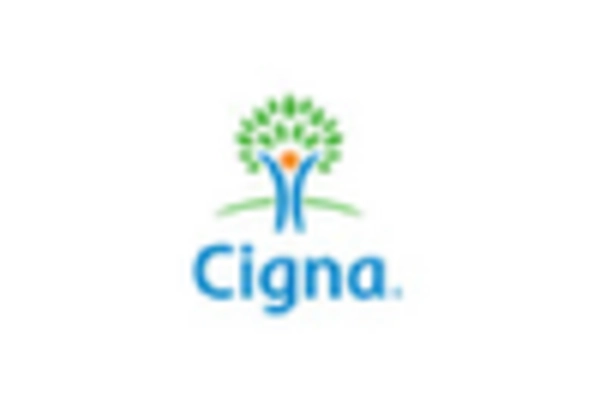Government Initiatives and Funding
Government initiatives play a crucial role in shaping the digital healthcare market in Italy. The Italian government has been actively promoting digital health solutions through various funding programs and policies aimed at enhancing healthcare accessibility and efficiency. For instance, the National Recovery and Resilience Plan allocates substantial resources to digital health projects, which could potentially increase the market size by 15% over the next few years. These initiatives not only support the development of innovative healthcare technologies but also encourage collaboration between public and private sectors, fostering a more integrated healthcare system. As a result, the digital healthcare market is likely to benefit from increased investment and innovation.
Growing Health Awareness Among Consumers
There is a discernible increase in health awareness among consumers in Italy, which significantly impacts the digital healthcare market. As individuals become more proactive about their health, they are increasingly turning to digital health solutions for information, monitoring, and management of their health conditions. This trend is evidenced by a rise in the use of health apps and wearable devices, with a reported 40% of Italians utilizing such technologies. The growing emphasis on preventive care and wellness is likely to drive the demand for digital healthcare services, as consumers seek tools that empower them to take control of their health. Consequently, this heightened awareness is expected to propel the digital healthcare market forward.
Technological Advancements in Healthcare
Technological advancements are a pivotal driver of the digital healthcare market in Italy. Innovations such as mobile health applications, telehealth platforms, and electronic health records are transforming the way healthcare is delivered. The integration of advanced technologies, including artificial intelligence and big data analytics, enhances the efficiency and effectiveness of healthcare services. For instance, the use of AI in diagnostics and patient management systems is projected to improve clinical outcomes significantly. As these technologies continue to evolve, they are likely to create new opportunities within the digital healthcare market, fostering a more efficient and patient-centered approach to healthcare delivery.
Rising Demand for Remote Healthcare Services
The digital healthcare market in Italy experiences a notable surge in demand for remote healthcare services. This trend is driven by an increasing population that seeks convenient access to medical consultations and follow-ups without the need for physical visits. According to recent data, approximately 30% of patients in Italy prefer telehealth options, reflecting a shift in consumer behavior towards digital solutions. The convenience of remote consultations, especially for chronic disease management, is likely to enhance patient engagement and adherence to treatment plans. As healthcare providers adapt to this demand, the digital healthcare market is expected to expand, with investments in telemedicine platforms and remote monitoring technologies becoming more prevalent.
Aging Population and Chronic Disease Management
The aging population in Italy presents a substantial driver for the digital healthcare market. With a significant portion of the population over 65 years old, there is an increasing prevalence of chronic diseases that require ongoing management. Digital health solutions, such as remote monitoring and telehealth services, are becoming essential in addressing the needs of this demographic. It is estimated that around 60% of older adults in Italy are managing at least one chronic condition, which necessitates regular medical attention. The digital healthcare market is likely to expand as healthcare providers develop tailored solutions to support this aging population, ensuring they receive timely and effective care.
















